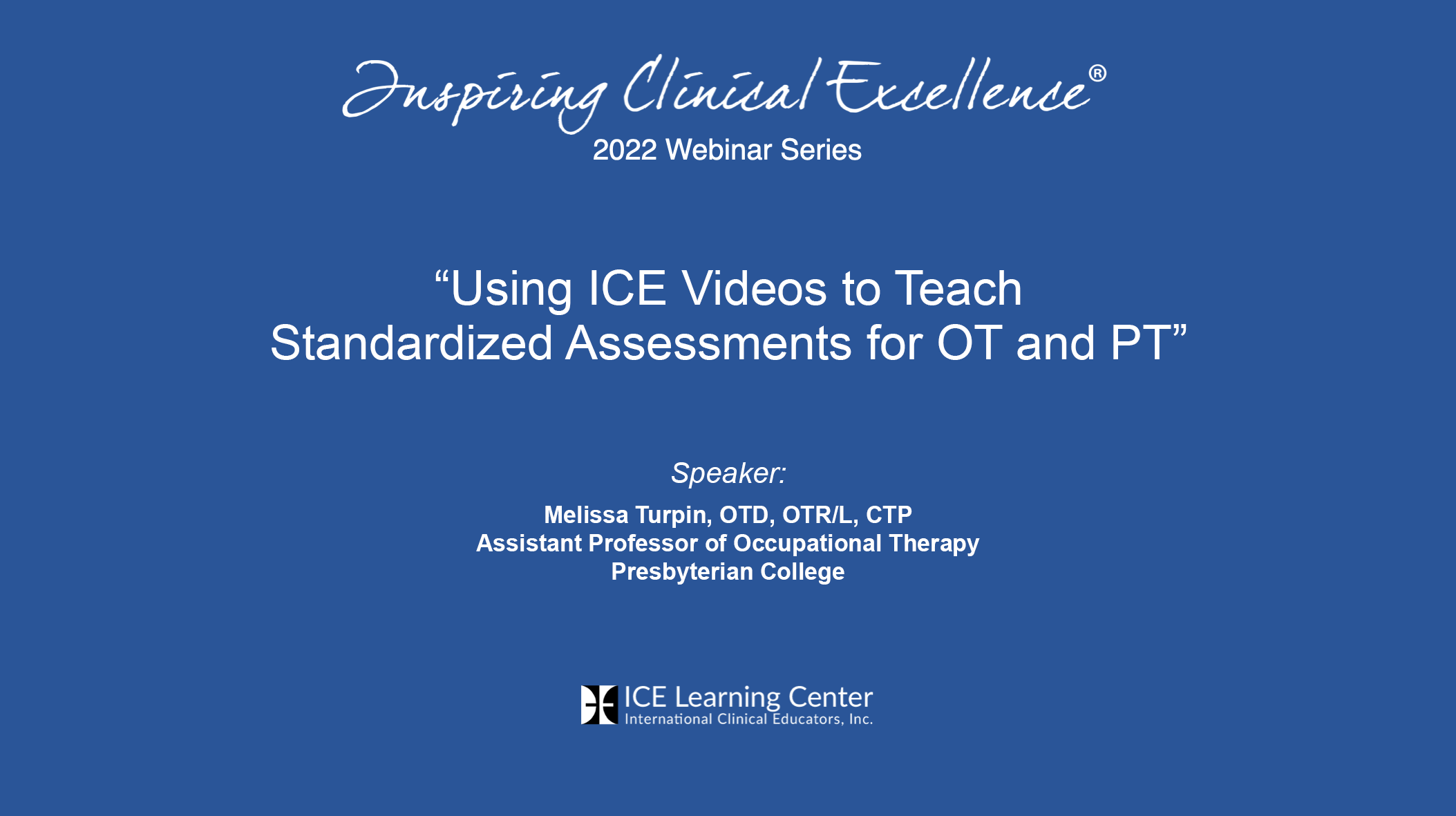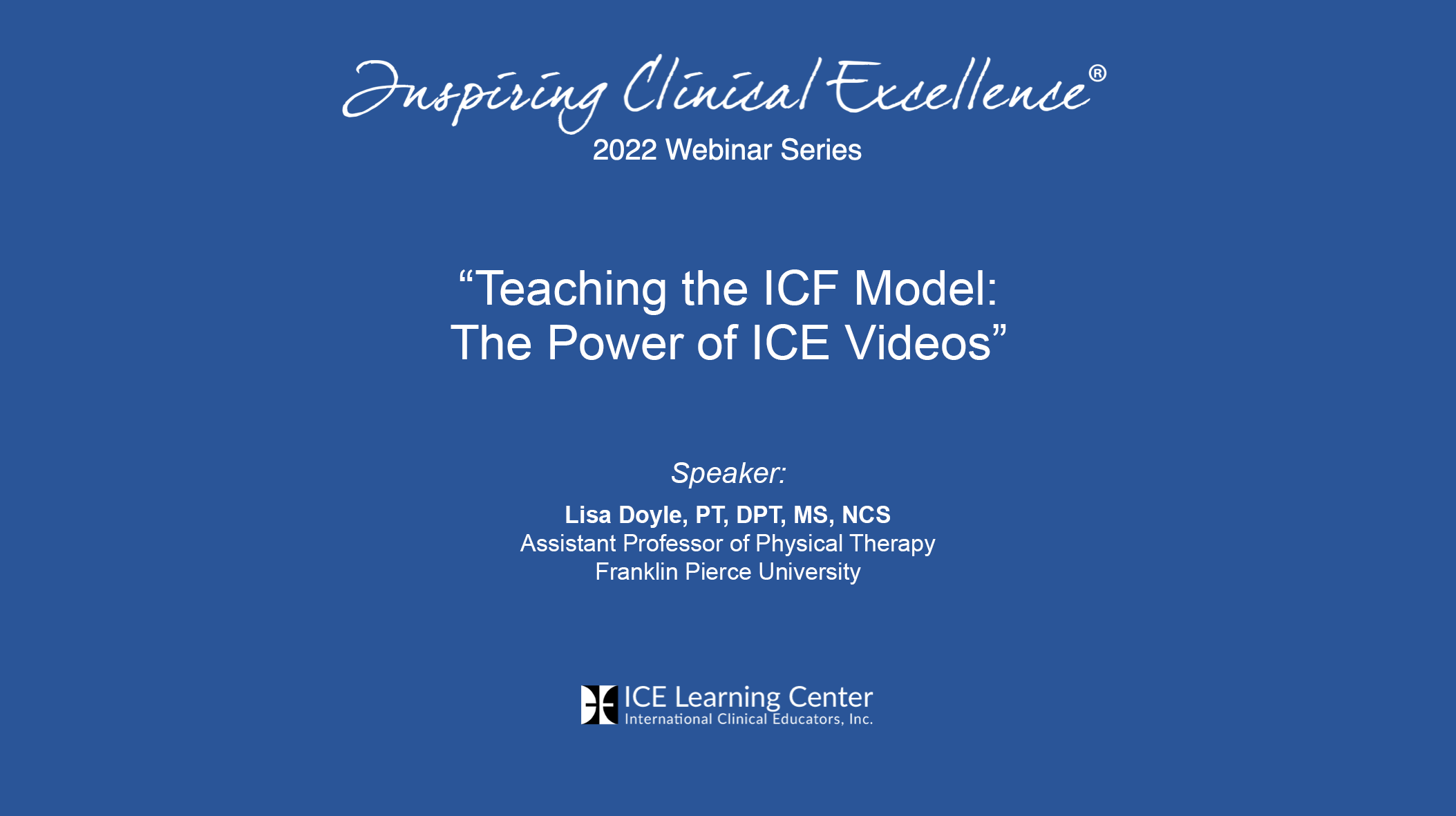Clinical Reasoning and Documentation with Ben
Students will need to identify the steps and cognitive skills required to complete an activity, justify why specified cognitive skills are necessary to complete an activity, and grade the activity demands up and down for individuals with varying degrees of cognitive impairment.
Activity Analysis of Cognitive Skills
Students will need to identify the steps and cognitive skills required to complete an activity, justify why specified cognitive skills are necessary to complete an activity, and grade the activity demands up and down for individuals with varying degrees of cognitive impairment.
Multiple Means of Engagement
Multiple Means of Engagement describes options to capture and sustain students’ interest. To optimize persistence and self-regulation, learning activities must be personally meaningful and valued.
Multiple Means of Representation
Multiple Means of Representation describes options for providing information to facilitate student knowledge acquisition and comprehension. Students receive content in varied ways that facilitate accessibility and success.
Multiple Means of Action or Expression
Multiple Means of Action and Expression describes options for students to demonstrate learning. This facilitates autonomy and creativity in learning as students are given varied means of communication and demonstration of learning.
Universal Design for Learning
Universal Design for Learning (UDL) is an educational framework that provides a comprehensive structure for learning opportunities to meet diverse learning needs.
Teaching UDL to Students for Clinical Practice
This lesson plan is designed to improve client education interventions that align with the Universal Design for Learning (UDL) educational framework. Instructors are encouraged to view the UDL module in Tips for Teaching to apply the framework to their instruction of students.
The OT Practice Framework
The Occupational Therapy Practice Framework: Domain and Process, 3rd ed. (OTPF-III) is an official AOTA document that represents the core concepts of what occupational therapists know (domain of knowledge) and do (process of evaluation and intervention).
Using Pediatric Videos to Make a Real-World Comprehensive Final Exam
Speaker:
Melissa Turpin, OTD, OTR/L, CTP
Using ICE Videos to Teach Standardized Assessments for OT and PT
Speaker:
Melissa Turpin, OTD, OTR/L, CTP
Five Easy Ways to Engage Your Students Using ICE Videos
Speaker:
Amanda K. Giles, OTD, OTR/L, FAOTA
Connecting Upper Extremity Biomechanics to Functional Activities
Speaker:
Lynne Murphy, EdD, OTR/L
Analysis of Sit to Stand and Early Gait with a Neurologically Impaired Patient
Speakers:
Lisa Doyle, PT, DPT, MS, NCS



















